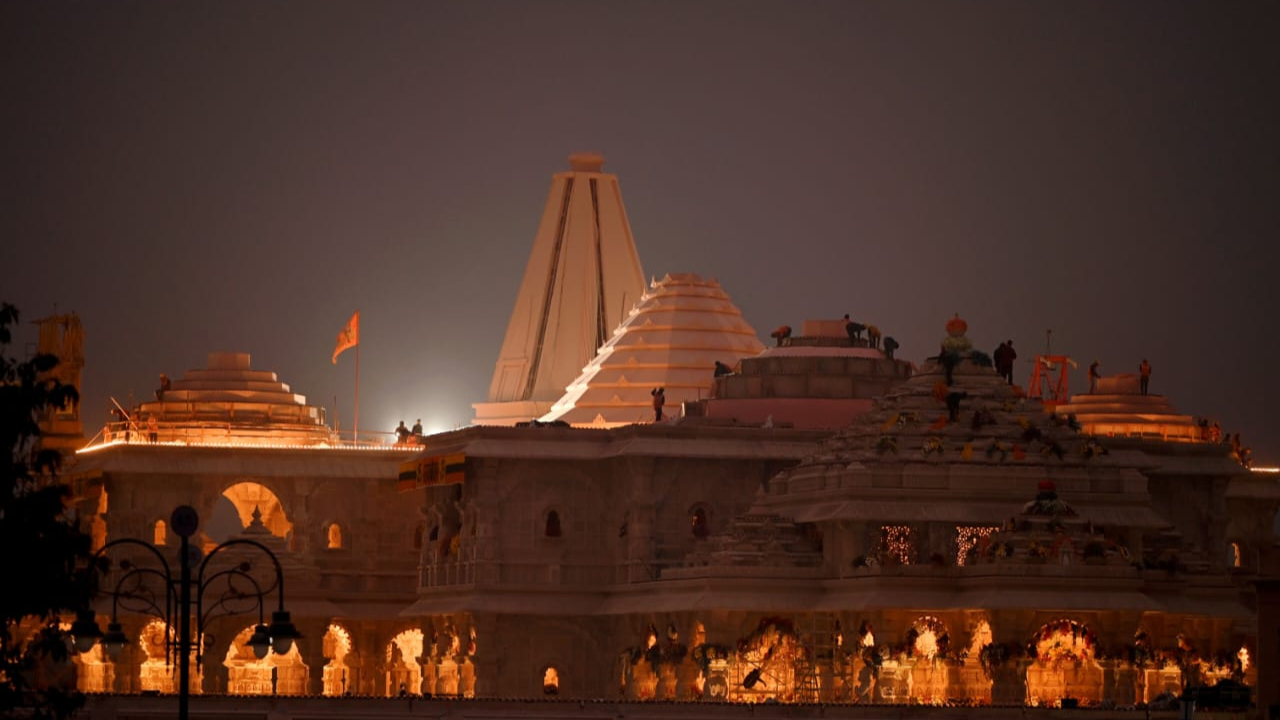LUCKNOW: The consecration ceremony at Ram temple, Ayodhya will be an environment friendly event. The food will be served in compostable plates and bowls with no use of SUP (single use plastic) items.
Shri Ram Janmabhoomi Teerth Kshetra Trust has brought Pakka, a company based in Ayodhya, on board to provide the compostable plates, bowls and spoons. At least six compostable SKUs (standard key units), like five chambered plates, three chambered plates, six inch plates, 250 ml bowls and a 350 ml container with a lid for packaging of `prasad’ is what the company will provide for the January 22 ceremony.
The company does not manufacture spoons but it will source it from others and provide wooden spoons to the temple trust. At least 1.5 lakh each of these SKUs will be sent to the trust for use during the ceremony.
Gautam Ghosh, Executive Director, Pakka said that the tablewares made of sugarcane waste (bagasse) is sturdy, can be microwaved, is fit for backyard composting and has been tested to hold even the hot mustard oil. “It does not get soggy,” said Ghosh.
Pakka has airports, IRCTC and Shirdi temple among its clients. “We also provide sugarcane pulp to at least 90 percent of the vendors who are manufacturing compostables made of bagasse,” said the official.
The company will continue to provide the items to the temple trust after the January 22 event also. Meanwhile, the Ayodhya Development Authority has issued the directives to all the tent cities in Ayodhya to use the compostable plates and bowls for the bhandaras that they organise in future to cut down the use of SUP in Ayodhya.
The compostable tableware made from bagasse is safe as it has no chemical used at any stage. The sugarcane waste procured from sugar mills is in the form of a fibre. It is cooked and treated with caustic to make into a pulp, which is then washed and dried. The 98% of the caustic used is recovered in a recovery plant, making the product safe for use.
The pulp is then moulded into the shape of a tableware. The products are also not bleached to look white. “It is not carcinogenic like plastic items,” said Ghosh.
Meanwhile, the temple trust has bought the tableware from the company and not taken them for free.
Shri Ram Janmabhoomi Teerth Kshetra Trust has brought Pakka, a company based in Ayodhya, on board to provide the compostable plates, bowls and spoons. At least six compostable SKUs (standard key units), like five chambered plates, three chambered plates, six inch plates, 250 ml bowls and a 350 ml container with a lid for packaging of `prasad’ is what the company will provide for the January 22 ceremony.
The company does not manufacture spoons but it will source it from others and provide wooden spoons to the temple trust. At least 1.5 lakh each of these SKUs will be sent to the trust for use during the ceremony.
Gautam Ghosh, Executive Director, Pakka said that the tablewares made of sugarcane waste (bagasse) is sturdy, can be microwaved, is fit for backyard composting and has been tested to hold even the hot mustard oil. “It does not get soggy,” said Ghosh.
Pakka has airports, IRCTC and Shirdi temple among its clients. “We also provide sugarcane pulp to at least 90 percent of the vendors who are manufacturing compostables made of bagasse,” said the official.
The company will continue to provide the items to the temple trust after the January 22 event also. Meanwhile, the Ayodhya Development Authority has issued the directives to all the tent cities in Ayodhya to use the compostable plates and bowls for the bhandaras that they organise in future to cut down the use of SUP in Ayodhya.
The compostable tableware made from bagasse is safe as it has no chemical used at any stage. The sugarcane waste procured from sugar mills is in the form of a fibre. It is cooked and treated with caustic to make into a pulp, which is then washed and dried. The 98% of the caustic used is recovered in a recovery plant, making the product safe for use.
The pulp is then moulded into the shape of a tableware. The products are also not bleached to look white. “It is not carcinogenic like plastic items,” said Ghosh.
Meanwhile, the temple trust has bought the tableware from the company and not taken them for free.
